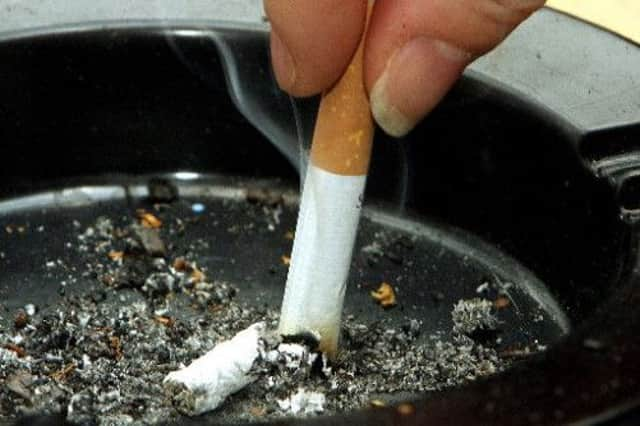Jane Devine: Having smoking areas at Commonwealth Games venues is hardly sending a healthy message


You can be enjoying a peaceful stroll or walk to work and then bam – that thick, pungent, hot air goes up your nose, into your eyes and sticks to your clothes and hair. It’s not pleasant.
Of course we are lucky in Scotland to have a ban on smoking in public places and while that doesn’t include pavements, it has given non-smokers a welcome break from inhaling other people’s fumes indoors. It has however meant that getting in and out of these havens of clean air now requires battling through a wall of fug created by the cast-out smokers who now crowd the entrances, puffing away.
Advertisement
Hide AdAdvertisement
Hide AdWhile smokers clearly relish their cigs, I doubt any of them would argue that it is healthy; would wish their children to smoke; or indeed wish strangers in the street to be perturbed by their behaviour. In fact most of the smokers I know (and that is admittedly very few) would like to stop.
No wonder: we’re a nation of just five million people yet every year an estimated 13,000 of us die from smoking-related illness. Those are not statistics to be proud of, they are statistics we need to do something about.
And, in 2014, we have a fantastic opportunity by including an anti-smoking message as part of the healthy legacy of the Commonwealth Games. So, it seems strange then that organisers are so far ignoring the pleas of ASH Scotland to create a smoke-free Games and in fact looking to make it more convenient, by creating smoking areas in sporting venues.
Will visitors to this spectacle of sport, which is meant to inspire health and fitness, also have to fight their way through a blue haze of vapour to get trackside? Do organisers think people will not come if they can’t smoke? Isn’t it more likely that it will make people more aware of their smoking habits as they start to reach for their next fag as Usain Bolt’s nicotine-free body hurtles by?
The Olympics were criticised for failing to deliver a healthy message with sponsorship from the likes of Coca Cola and McDonalds, and the same criticisms may well befall Glasgow, but this isn’t about sponsorship. And we have been bold in Scotland in legislating about smoking with both the ban and more recently a proposal by Jim Hume MSP to outlaw smoking in private cars.
To see the reductions in numbers that we need, we must inspire people to give up – not just restrict – their activity and we certainly shouldn’t encourage it.
We need to be unflinching in our message that smoking is bad for us and exploit every chance we have to reinforce that message.
The Commonwealth Games are a golden opportunity to shape the attitudes we need for a healthier Scotland, but at the moment, we’re not at the races.